It's The Economy, Stupid: Bidenomics and Public Opinion
# Delving into American Conservatism: Past, Present, and Future
American conservatism is steeped in rich history, often interwoven with discussions of economic policies, income tax, and the impacts of presidential decisions on the economy. A prime focus of American conservatism today is the Herbert Hoover Presidential Library Museum in West Branch, Iowa, a place of much interest to scholars, historians, and political analysts alike. Named after the 31st President of the United States, Herbert Hoover, the museum offers a treasure of information and historical archives that shed light on pivotal moments in American conservatism.
## Herbert Hoover: A Torchbearer of Modern American Conservatism
Herbert Hoover is not just an intriguing presidential figure, but many observers of American politics see him as the godfather of modern American conservatism. Hoover's influence spans from his presidential years to his activities during the post-presidency era. Of particular interest is his stance on the New Deal, a series of public works projects, financial reforms, and regulations enacted by President Franklin D. Roosevelt in the 1930s. Analyzing Hoover's perspective on these issues can provide valuable insights into a somewhat overlooked chapter of American conservatism.
## Iowa's Tax History: Resonance with Today’s Issues
Particular emphasis is given to the exploration of early 20th century Iowa tax history. Documents from that period reveal that Iowa's primary tax was property tax. Advocacy groups during that time were suggesting other sources of income for tax relief, such as sales and income taxes. The significance of these documents today lies in the current legislative discussions surrounding income tax, especially considering the inception of Iowa's first income tax took place in the early 1930s. Drawing parallels between the past and present can help shape future tax policies.
## Reflecting on American Political Climate
In the present day, income taxes, property taxes, and debates around the Electoral College still echo arguments from past decades, proving policy discussions are often cyclical. Past discourses and decisions help us forecast and shape the future of political and economic policy. The notion of Bidenomics has surfaced, reflecting public sentiment and perception of President Joe Biden's administration. Amid talk of increased expenditure and inflation rates, citizens are growing more concerned about their financial stability.
One crucial aspect to consider is the influence of presidential regimes on known economic indices. Does a political leader guide the economy toward a growth trajectory or does economic growth stumble during their tenure? The answers often vary across different income groups and political beliefs, but the consensus seems to lean toward a direct correlation between the two.
In the wake of these discussions, understanding Herbert Hoover's politics and their significance in modern American conservatism is both relevant and insightful. It not only provides a richer understanding of U.S. politics but also sheds light on how history can inform and influence present and future tax policies and economic strategies.
-
 0:50
0:50
Wealthion
9 months agoWhat's Messing Up The Economy?
83 -
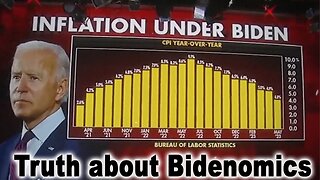 5:51
5:51
USAFrontlineDoctors
4 months agoThe Truth About Bidenomics- Whatever That Is?
4542 -
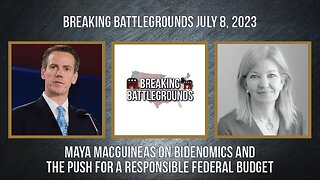 54:27
54:27
Breaking Battlegrounds
10 months agoMaya MacGuineas on Bidenomics and the Push for a Responsible Federal Budget
82 -
 0:12
0:12
NewsVids
5 months agoKJP Still Trying To Talk Up The Crap Economy, But No Longer Using The Term 'Bidenomics'
83 -
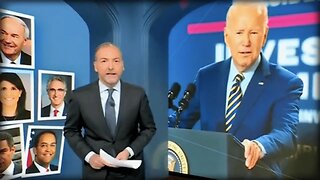 3:34
3:34
NextNewsNetwork
10 months agoThe Unsettling Reality of Bidenomics: Plummeting Approval and Economic Apprehension
530 -
 2:45
2:45
Heavily Muzzled - The Thinking Conservative
10 months agoThe Truth About Bidenomics
1322 -
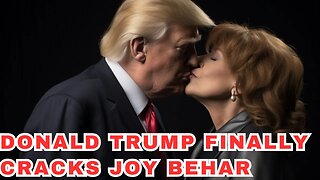 14:06
14:06
common sense garage
8 months agoJoy Behar and THE VIEW completely MELT DOWN Over DISASTROUS Biden Polls. SAY the ECONOMY is GREAT!
51 -
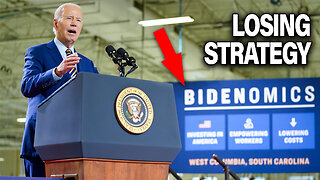 1:00:51
1:00:51
The Unspoken Truth
10 months agoBidenomics making EVERYONE POOR - what an absolute disaster
24 -
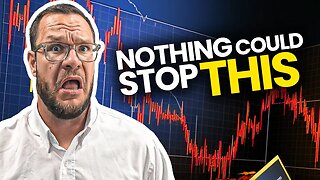 8:30
8:30
10 Minute Stock Trader
7 months ago $0.01 earned2024's Economic MELTDOWN - Worst Since the Great Depression?!
130 -
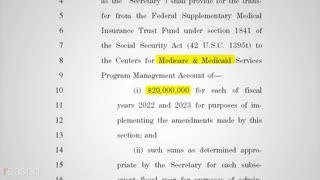 6:39
6:39
TRENDING TOPICS
1 year agoHow Biden's Agenda Is Causing Inflation
72